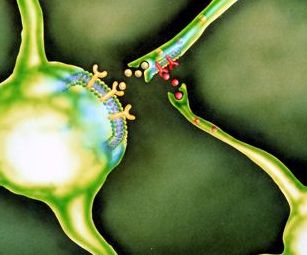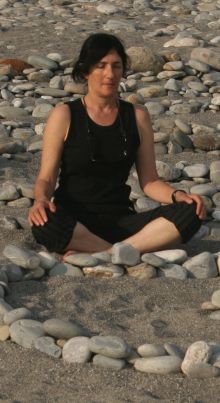Share
Worldwide one in five people report chronic pain according to World Health Organization estimates.
Many factors influence a patient’s experience of pain including the way they tend to think and feel as well as the type and nature of the pain – all of which need to be addressed for successful pain control.
In a recent major article published in the world-leading medical journal, The Lancet, studies on the effectiveness of common treatments for chronic pain due to osteoarthritis, nerve pain, fibromyalgia and low-back pain were reviewed.
A large focus was on medications, injections and surgery – as these represent the main areas of research over the last fifty years.
Medications:
Medications primarily work in the brain altering brain chemistry.
It was found that opioid drugs, such as Morphine, Panadeine Forte, Oxycontin and Endone, were the most commonly prescribed drugs (with sales having increased by more than 175 % between 1997 and 2006), however, these agents were associated with only small improvements in pain and function and result in structural changes in the brain even after a short time of use.
 Psychological techniques such as counselling were found to have “modest benefits” but long-term outcomes were uncertain and it was noted that individual patients may respond better to different types of psychological therapies.
Psychological techniques such as counselling were found to have “modest benefits” but long-term outcomes were uncertain and it was noted that individual patients may respond better to different types of psychological therapies.
Complementary approaches
Evidence also varied for complementary approaches, being “promising” for the use of acupuncture in fibromyalgia but not demonstrably effective in other pain conditions.
Conclusion of this study
The reviewers concluded that none of the widely used treatments analysed were adequate for eliminating pain and improving function in most chronic pain patient over a long period.
The way forward
They identified that “a great need exists for research that goes beyond asking the question of whether a particular drug treatment is effective, to addressing what treatments in combinations with other treatments are effective for which patients, under what circumstances and at what cost ?”
Hence the article supported the notion that, to date, the most effective approach to treatment is an integrative approach to pain management including:
mind-body techniques,
psychosocial approaches
and mainstream medical approaches
Worldwide this approach is sadly lacking for the majority of those with chronic pain.
Meditation -A useful approach
In contrast, one exciting area of research on the effect of meditation on the brain to reduce pain appeared recently in the Journal of Neuroscience.
“This is the first study to show that only a little over an hour of meditation training can dramatically reduce both the experience of pain and pain-related brain activation,” said Fadel Zeidan, PhD, lead author of the study and post-doctoral research fellow at Wake Forest Baptist Medical Center.
Pain reduction
The study demonstrated that meditation produced about a 40 per cent reduction in pain intensity and a 57 per cent reduction in pain unpleasantness.
According to the authors, “these levels of pain reduction surpassed that which can be achieved with opioid medications in chronic pain. Morphine or other pain-relieving drugs which typically reduce pain ratings by about 25 per cent.”
During the research, 15 healthy volunteers who had never meditated attended four, 20-minute classes to learn a meditation technique known as focussed attention. This is a form of mindfulness meditation where people are taught to attend to the breath and let go of distracting thoughts and emotions.
Both before and after meditation training, the brain activity of the participants was examined using a special type of imaging. During these scans, a pain-inducing heat device was placed on the participants’ right legs for 5 minutes.
The effect of meditation on pain
The scans taken after meditation training showed that every participant’s pain ratings were reduced, with decreases ranging from 11 to 93 per cent. At the same time, meditation significantly reduced brain activity in the part of the brain that assesses the location and intensity of a painful stimulus.
The scans taken before meditation training showed the brain activity in this area to be very high. However, when participants were meditating during the scans, activity in this important pain-processing region could not be detected.
The research also showed that meditation increased brain activity in other areas. These areas when activated reduced pain.
In other words
meditation was demonstrated to effect different parts of the brain in different ways to decrease pain.
There appeared to be a cumulative effect on the brain in that the more these areas were activated by meditation the more that pain was reduced.
This study is now one of many that demonstrate that meditation produces real effects in the brain and can provide an effective way for people to substantially reduce their pain without medications.
This information is not new.
 The benefits have been known in many ancient cultures.
The benefits have been known in many ancient cultures.
Meditation for pain relief was first used successfully in hospitals in America in the mid-1970s. It is exciting that together with an understanding of how the brain works meditation is becoming a central aspect of pain management training.
Our own experience in conducting The More Than Mediation Course which is now in its 11th year mirrors the results of this recent research study.
The More Than Mediation Course over 6 weeks offers a unique, supportive and structured way of allowing you to bring the multiple benefits of meditation, including relieving pain, into your life.
What you can expect in this course:
- Support to establish a meditation practice.
- Experiential learning
- Overcoming the obstacles to daily meditation
- Time management and prioritizing your valuable time
- Training your constantly thinking mind to experience stillness
- weekly between session email and telephone support
- Facilitated (guided) meditations
- Access to our meditation Health Library
- Learning and fun as you become a confident meditator for your health and wellbering.
You you are invited to participate. To Register Click here or call Leonie 95349495.
